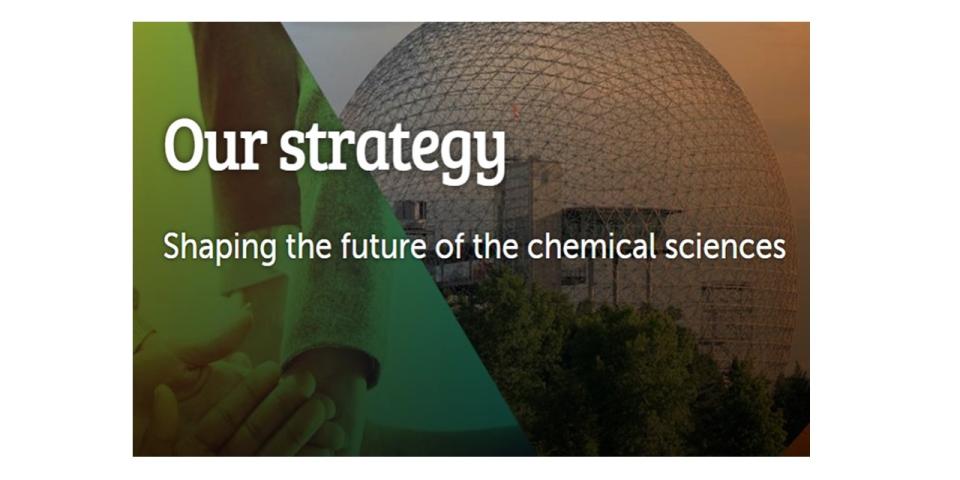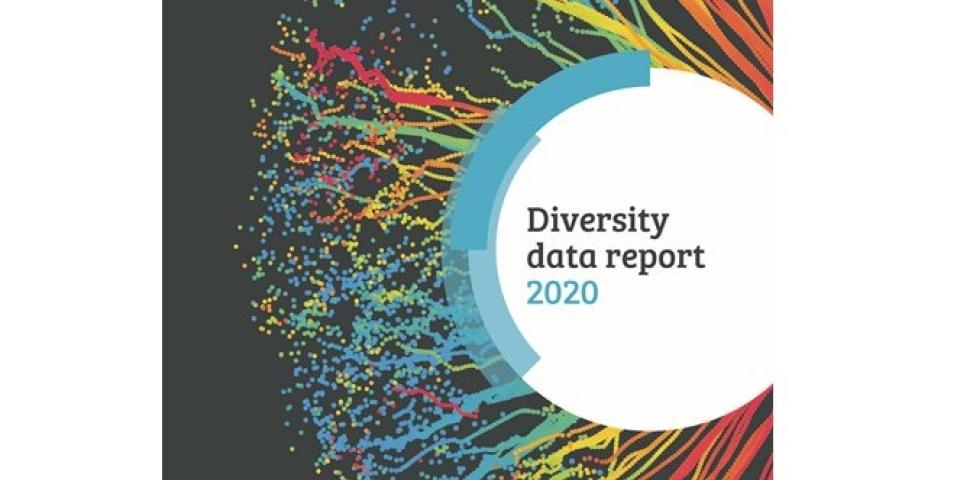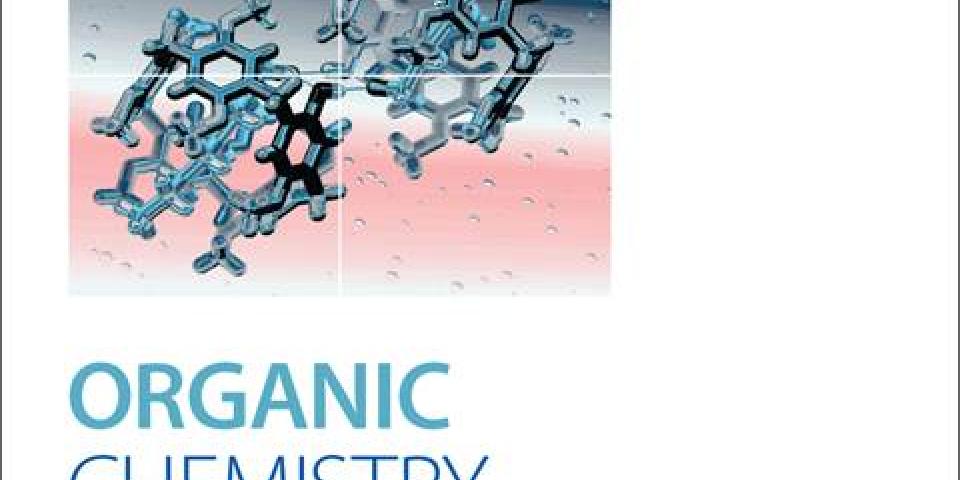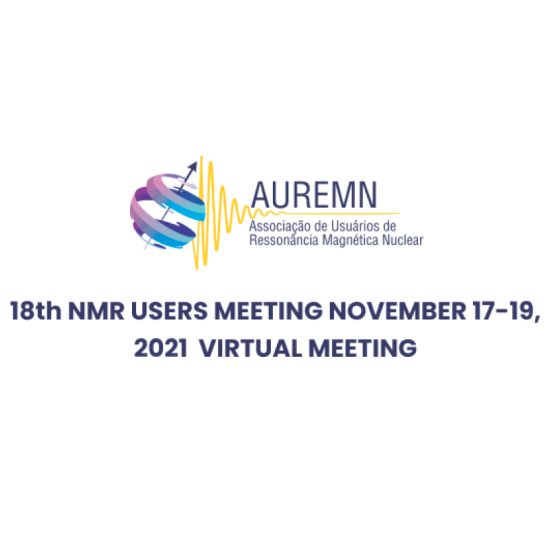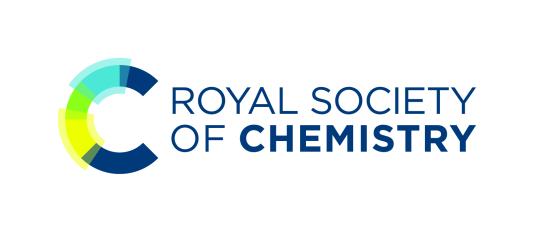
Highlights
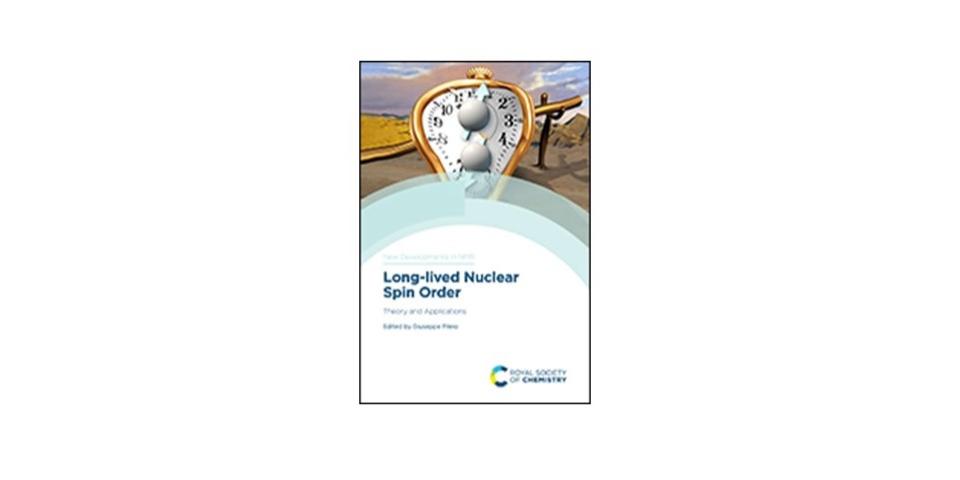
Concorra a um livro (NMR) da RSC
Book series: New Developments in NMR
Advanced Diffusion Encoding Methods in MRIISBN: 978-1-78801-726-8
Advances in Biological Solid-State NMR : Proteins and Membrane-Active PeptidesISBN: 978-1-84973-910-8
Biophysics and Biochemistry of Cartilage by NMR and MRIISBN: 978-1-78262-133-1
Contemporary Computer-Assisted Approaches to Molecular Structure ElucidationISBN: 978-1-84973-432-5
Contrast Agents for MRI : Experimental MethodsISBN: 978-1-78262-447-9
Cross-relaxation and Cross-correlation Parameters in NMR : Molecular ApproachesISBN: 978-1-84973-913-9
Diffusion NMR of Confined Systems : Fluid Transport in Porous Solids and Heterogeneous MaterialsISBN: 978-1-78262-190-4
Fast NMR Data Acquisition : Beyond the Fourier TransformISBN: 978-1-84973-619-0
Field-cycling NMR Relaxometry : Instrumentation, Model Theories and ApplicationsISBN: 978-1-78801-154-9
Gas Phase NMRISBN: 978-1-78262-161-4
Hybrid MR-PET Imaging : Systems, Methods and ApplicationsISBN: 978-1-78801-074-0
Hyperpolarized Xenon-129 Magnetic Resonance : Concepts, Production, Techniques and ApplicationsISBN: 978-1-84973-889-7
In-cell NMR Spectroscopy : From Molecular Sciences to Cell BiologyISBN: 978-1-78801-217-1
Long-lived Nuclear Spin Order : Theory and ApplicationsISBN: 978-1-78801-568-4
Magnetic Resonance Technology : Hardware and System Component DesignISBN: 978-1-78262-359-5
Mobile NMR and MRI : Developments and ApplicationsISBN: 978-1-84973-915-3
Modern Methods in Solid-state NMR : A Practitioner's GuideISBN: 978-1-78262-854-5
New Applications of NMR in Drug Discovery and DevelopmentISBN: 978-1-84973-444-8
NMR and MRI of Electrochemical Energy Storage Materials and DevicesISBN: 978-1-78801-848-7
NMR and MRI of GelsISBN: 978-1-78801-152-5
NMR in Glycoscience and GlycotechnologyISBN: 978-1-78262-310-6
NMR Methods for Characterization of Synthetic and Natural PolymersISBN: 978-1-78801-400-7
NMR-based MetabolomicsISBN: 978-1-84973-643-5
Optimizing NMR Methods for Structure Elucidation : Characterizing Natural Products and Other Organic CompoundsISBN: 978-1-78262-539-1
Paramagnetism in Experimental Biomolecular NMRISBN: 978-1-78801-086-3
Terms and Conditions for the draw
- The Promoter of this prize draw is the Royal Society of Chemistry (“the Promoter”).
- The prize draw is open to all event attendees who enter the draw with their correct details
- The Promotion is only available to persons over the age of 18.
- To enter the prize draw provide your details before the closing ceremony of the event
- Only one entry per person.
- There will be 2 winners from this draw
- The prize draw close at 17:00 on Friday 19/ Nov 2021 - with the winning entries drawn by the Promoter on Friday 19/Nov 2021 just before the Closing Ceremony
- The winner[s] will be announced at the closing ceremony and notified by email on Monday 22/ Dec 2021 If the winner[s] do[es] not claim the prize within 30 days of being notified then they will forfeit the prize and a re-draw will take place.
- To claim the prize the winner must follow the instructions in the message notifying them that they have won a prize. The prize will be dispatched to the winner no later than 60 days after they claim the prize.
- No responsibility will be accepted for incomplete, illegible or lost entries or entries not received for any reason.
- In the event of any dispute the Promoter's decision is final and no correspondence will be entered into.
- The Promoter accepts no responsibility for the prize being lost, damaged or delayed.
- The Promoter shall have no liability to the winner or any third party for any inability of the winner to claim the prize, or to take the full benefit of it as a result of the terms and conditions or any other reason.
- The prize is non-exchangeable, non-transferable, and is not redeemable for cash or other prizes.
- The Promoter reserves the right to modify or withdraw the Promotion at any time without prior notice.
- By entering the prize draw you agree to be bound by these terms and conditions.
- Employees of the Royal Society of Chemistry, or their associated companies, and employees of any agents or any third party directly associated with administration of the prize draw are not eligible to participate.
- Details of the winner will be available for up to six weeks after the closing date by emailing the promoter: marketing@rsc.org. The Winner[s] agree[s] to have their name, county and country disclosed for this purpose.
- These terms and conditions are governed by English law and the courts of England and Wales and will have non-exclusive Jurisdiction.
Available contents
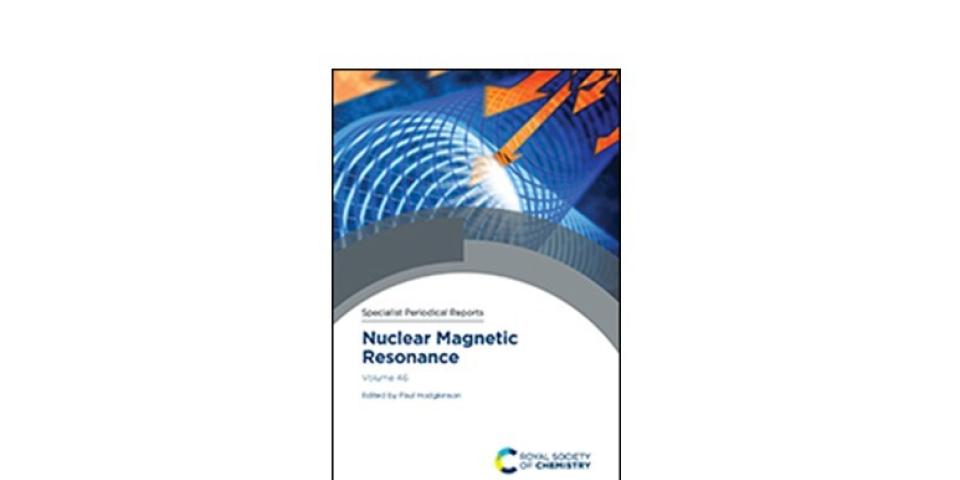
New Developments in NMR - Series
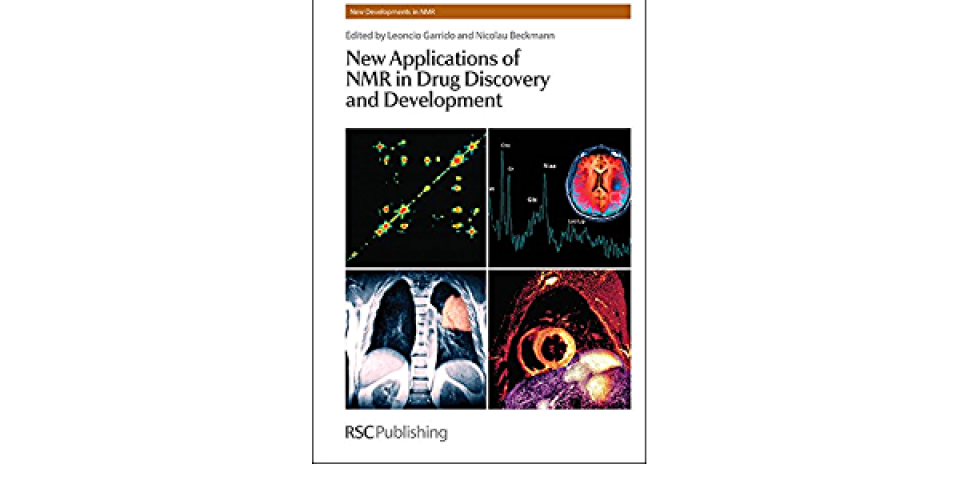
New Applications of NMR in Drug Discovery and Development

Concorra a um livro (NMR) da RSC
Book series: New Developments in NMR
Advanced Diffusion Encoding Methods in MRIISBN: 978-1-78801-726-8
Advances in Biological Solid-State NMR : Proteins and Membrane-Active PeptidesISBN: 978-1-84973-910-8
Biophysics and Biochemistry of Cartilage by NMR and MRIISBN: 978-1-78262-133-1
Contemporary Computer-Assisted Approaches to Molecular Structure ElucidationISBN: 978-1-84973-432-5
Contrast Agents for MRI : Experimental MethodsISBN: 978-1-78262-447-9
Cross-relaxation and Cross-correlation Parameters in NMR : Molecular ApproachesISBN: 978-1-84973-913-9
Diffusion NMR of Confined Systems : Fluid Transport in Porous Solids and Heterogeneous MaterialsISBN: 978-1-78262-190-4
Fast NMR Data Acquisition : Beyond the Fourier TransformISBN: 978-1-84973-619-0
Field-cycling NMR Relaxometry : Instrumentation, Model Theories and ApplicationsISBN: 978-1-78801-154-9
Gas Phase NMRISBN: 978-1-78262-161-4
Hybrid MR-PET Imaging : Systems, Methods and ApplicationsISBN: 978-1-78801-074-0
Hyperpolarized Xenon-129 Magnetic Resonance : Concepts, Production, Techniques and ApplicationsISBN: 978-1-84973-889-7
In-cell NMR Spectroscopy : From Molecular Sciences to Cell BiologyISBN: 978-1-78801-217-1
Long-lived Nuclear Spin Order : Theory and ApplicationsISBN: 978-1-78801-568-4
Magnetic Resonance Technology : Hardware and System Component DesignISBN: 978-1-78262-359-5
Mobile NMR and MRI : Developments and ApplicationsISBN: 978-1-84973-915-3
Modern Methods in Solid-state NMR : A Practitioner's GuideISBN: 978-1-78262-854-5
New Applications of NMR in Drug Discovery and DevelopmentISBN: 978-1-84973-444-8
NMR and MRI of Electrochemical Energy Storage Materials and DevicesISBN: 978-1-78801-848-7
NMR and MRI of GelsISBN: 978-1-78801-152-5
NMR in Glycoscience and GlycotechnologyISBN: 978-1-78262-310-6
NMR Methods for Characterization of Synthetic and Natural PolymersISBN: 978-1-78801-400-7
NMR-based MetabolomicsISBN: 978-1-84973-643-5
Optimizing NMR Methods for Structure Elucidation : Characterizing Natural Products and Other Organic CompoundsISBN: 978-1-78262-539-1
Paramagnetism in Experimental Biomolecular NMRISBN: 978-1-78801-086-3
Terms and Conditions for the draw
- The Promoter of this prize draw is the Royal Society of Chemistry (“the Promoter”).
- The prize draw is open to all event attendees who enter the draw with their correct details
- The Promotion is only available to persons over the age of 18.
- To enter the prize draw provide your details before the closing ceremony of the event
- Only one entry per person.
- There will be 2 winners from this draw
- The prize draw close at 17:00 on Friday 19/ Nov 2021 - with the winning entries drawn by the Promoter on Friday 19/Nov 2021 just before the Closing Ceremony
- The winner[s] will be announced at the closing ceremony and notified by email on Monday 22/ Dec 2021 If the winner[s] do[es] not claim the prize within 30 days of being notified then they will forfeit the prize and a re-draw will take place.
- To claim the prize the winner must follow the instructions in the message notifying them that they have won a prize. The prize will be dispatched to the winner no later than 60 days after they claim the prize.
- No responsibility will be accepted for incomplete, illegible or lost entries or entries not received for any reason.
- In the event of any dispute the Promoter's decision is final and no correspondence will be entered into.
- The Promoter accepts no responsibility for the prize being lost, damaged or delayed.
- The Promoter shall have no liability to the winner or any third party for any inability of the winner to claim the prize, or to take the full benefit of it as a result of the terms and conditions or any other reason.
- The prize is non-exchangeable, non-transferable, and is not redeemable for cash or other prizes.
- The Promoter reserves the right to modify or withdraw the Promotion at any time without prior notice.
- By entering the prize draw you agree to be bound by these terms and conditions.
- Employees of the Royal Society of Chemistry, or their associated companies, and employees of any agents or any third party directly associated with administration of the prize draw are not eligible to participate.
- Details of the winner will be available for up to six weeks after the closing date by emailing the promoter: marketing@rsc.org. The Winner[s] agree[s] to have their name, county and country disclosed for this purpose.
- These terms and conditions are governed by English law and the courts of England and Wales and will have non-exclusive Jurisdiction.
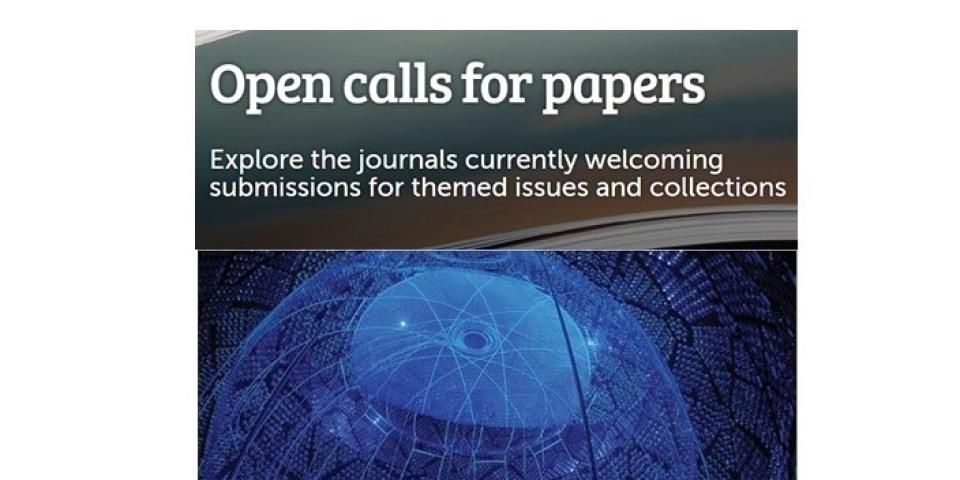
Themed Collection Calls
An article in a Royal Society of Chemistry journal is an article that drives change.
For your field, it might be the key to answering a much puzzled-over question. For the wider community, it is a contribution to improving publishing culture, and to upholding the highest standards for science.
As a not-for-profit publisher working with, and for, chemical science researchers, the more we publish, the more we can help.
Search for current calls for papers in your subject area
Royal Society of Chemistry journals are home to groundbreaking advances, new directions, innovative solutions and thought-provoking ideas in all areas of the chemical sciences and related disciplines.
The link below displays the subject categories and journals that currently have open calls for papers. Click on the category to view all, or select an individual journal to find their specific calls for papers.
Calls for papers in the chemical sciences & related disciplines (rsc.org)
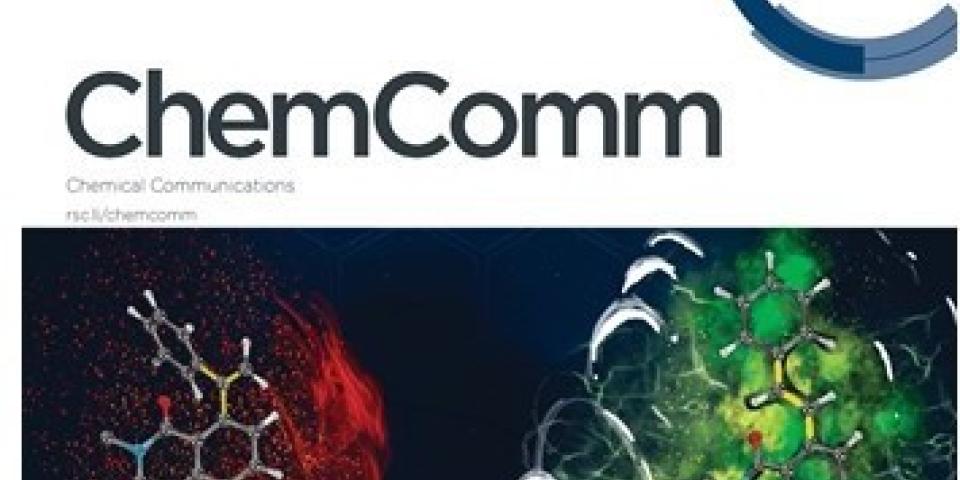
ChemComm
Urgent communications of outstanding significance from across the chemical sciences. Optional-in double-blind peer review
ChemComm is the Royal Society of Chemistry’s journal for urgent communications of outstanding significance from across the chemical sciences.
The RSC’s most cited journal, we have been one of the most trusted venues for rapid publication of short communications for more than 50 years.
ChemComm is here to support researchers throughout their careers. Whether you’re a first-time author or a senior academic you can trust us to handle your submission fairly and efficiently.
Our publication times are amongst the fastest in chemistry, and researchers typically receive a first decision on their peer-reviewed manuscript within 3 weeks of submission.
ChemComm is part of the RSC’s family of high impact general chemistry journals, alongside Chemical Science and Chemical Society Reviews
Scope
ChemComm publishes urgent research which is of outstanding significance and interest to experts in the field, while also appealing to the journal’s general chemistry readership. Our communication format is ideally suited to short, urgent studies that are of such importance that they require accelerated publication.
Work which is routine or of only moderate significance, or research which is of interest only to the specialist, is generally not suitable for publication in ChemComm.
Our scope covers the breadth of the chemical sciences, including:
- Analytical chemistry
- Biomaterials chemistry
- Bioorganic/medicinal chemistry
- Catalysis
- Chemical Biology
- Coordination Chemistry
- Crystal Engineering
- Energy
- Sustainable chemistry
- Green chemistry
- Inorganic chemistry
- Inorganic materials
- Main group chemistry
- Nanoscience
- Organic chemistry
- Organic materials
- Organometallics
- Physical chemistry
- Supramolecular chemistry
- Synthetic methodology
- Theoretical and computational chemistry
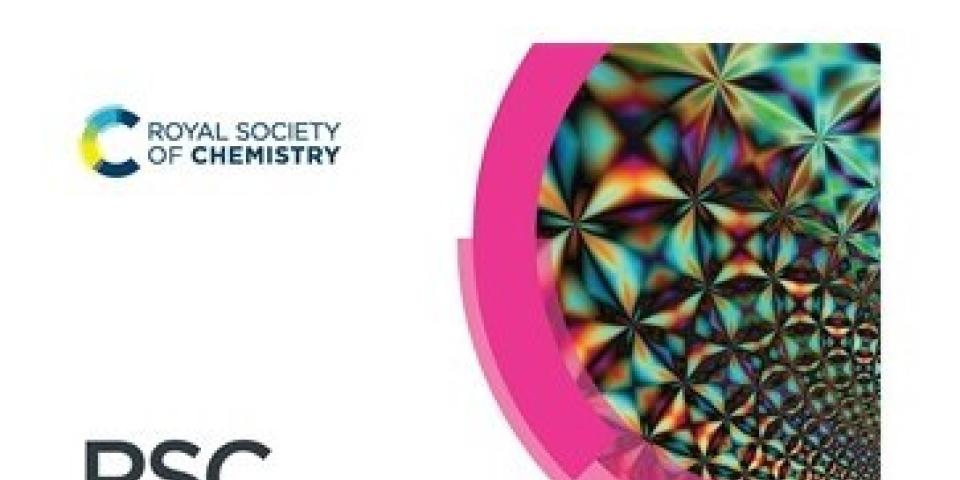
RSC Advances : A gold open access journal
As the largest gold open access journal dedicated to the chemical sciences, we are here for everyone who wants to publish quality chemistry research and share it with the world. We are here for everyone who needs access to work in every area of the chemical sciences and related disciplines.
And as part of the Royal Society of Chemistry, we are at the heart of open, international research dissemination for the chemistry community. Great science matters. We make sure the world knows it.
We highlight here two Collections for the 20th SBQT (Brazil) :
Machine learning and artificial neural networks in chemistry
Physical articles published in the last 6 months at RSC Advances
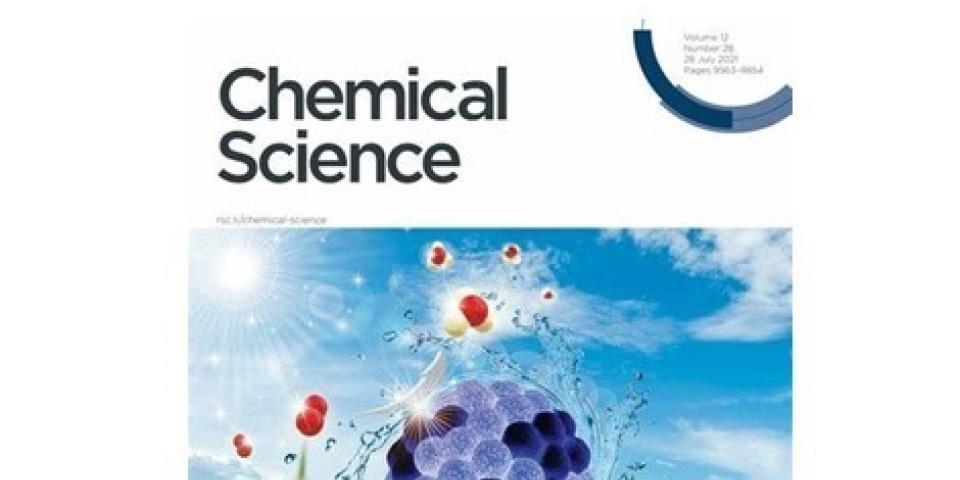
Chemical Science
Home to exceptional research and thought-provoking ideas. Open and free, for authors and readers.
Chemical Science is diamond open access – helping scientists at every stage of their career to make an impact with their work, and giving valuable breakthroughs a voice for all to hear.
What is in scope?
We’re a team from every field of the chemical sciences, and know from experience that breakthroughs that drive the solutions to global challenges can come from anywhere, at any time.
The research we publish contains the sorts of novel ideas, challenging questions and progressive thinking that bring undiscovered breakthroughs within reach.
Your paper could focus on a single area, or cross many. It could be beyond the accepted bounds of the chemical sciences. It might address an immediate challenge, contribute to a future breakthrough or be wholly conceptual.
You could even start an entirely new area of research.
Too bold? Too progressive? No such thing.
Chemical Science publishes all original research in one format: Edge articles. Chemical Science editors understand that traditional two- or three-page limits for the dissemination of new research are not suitable across all sub-fields of chemistry. Edge articles have absolutely no page limits, although we anticipate that most will fall between four and 10 pages.
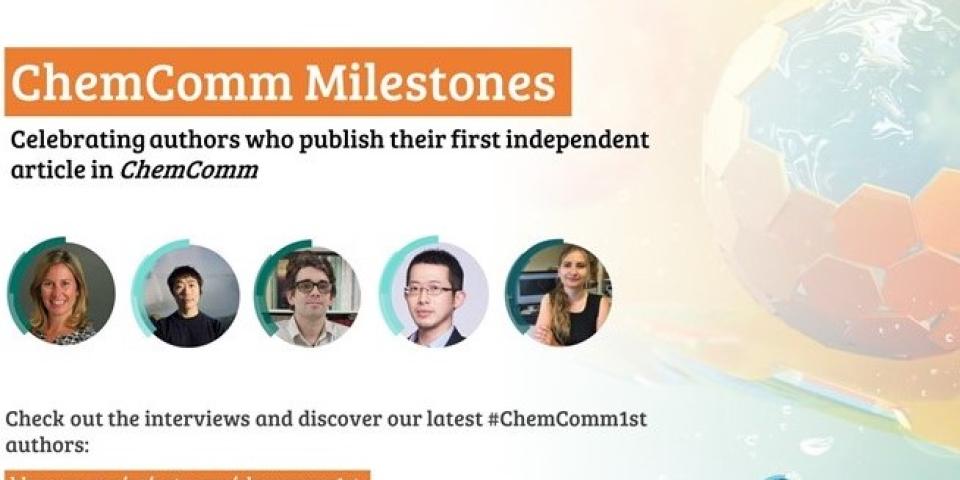
ChemComm: authors who publish their first independent article
At ChemComm we love to celebrate researchers who are publishing their very first article as an independent or corresponding author. This important milestone marks the beginning of your academic career and we are proud to champion authors through this stage and beyond
If you are writing your very first article, why not submit it to ChemComm? If published, we will give your article and wider research the global exposure they deserve, including a feature interview with the author. Read the interviews included so far on our dedicated web page -->
ChemComm1st page.
ChemComm is the Royal Society of Chemistry’s journal for urgent communications of outstanding significance from across the chemical sciences. We have been one of the most trusted venues for rapid publication of short communications for more than 50 years. You can rely on us to handle your submission fairly and efficiently, and to give you and your research global reach.
Papers accepted for publication in this collection will be published in the earliest available issue and collated together in a dedicated BLOG page on the journal -->
website.
All submissions will be subject to the journal’s high standards in peer review.

Why Open Access?
Open access refers to the free and permanent unrestricted online access to scholarly research. Authors retain copyright to their work, and a licence is applied which allows users to download, copy, reuse and distribute data provided the original article is fully cited.
Open access aims to maximise the visibility of research, much of which is publicly funded. Open access differs from free online access as it provides reuse rights provided full attribution is given while authors retain copyright to their work.
We seek to always maintain our standards and ethics of publishing and provide a quality service for all our authors, reviewers and readers throughout the publication process. We apply the same rigorous peer review processes to all our journals, whether full open access or hybrid. The open access invoicing process is handled by administration staff who are not involved with the peer review or acceptance/rejection of the paper.
The Royal Society of Chemistry supports open access models that seek to ensure scholarly publishing activities operate in a long-term, sustainable way:
- Our fundamental goal is to advance the chemical sciences, through the effective dissemination of high quality research content.
- We seek to maintain standards and ethics of publishing and provide a quality service, and to maximise the availability and accessibility of the research that we publish.
- We support any and all sustainable and fair models of access. We believe that the integrity and archiving of scholarly content must be maintained throughout.
- We support gold open access and encourage funding to be made available to support authors during any transition from reader- to author-side payments.
- We support the author's ability to choose where they publish their work to the benefit of the advancement of science. We do not wish authors to be discriminated against if they are unable to pay article processing charges.
- We seek to work closely with other parties, including funders and government agencies, to achieve these goals.
More at How to publish open access for journal authors (rsc.org)
Also, our full Report: researchers-voice-on-open-access.pdf (rsc.org)
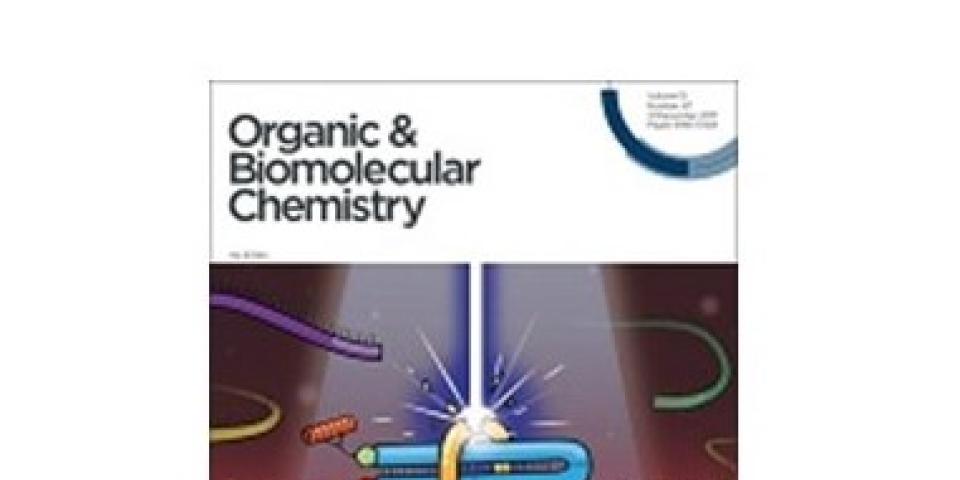
Organic & Biomolecular Chemistry
What would you like to know about Organic & Biomolecular Chemistry?
Scope
Organic & Biomolecular Chemistry (OBC) publishes original and high impact research and reviews in organic chemistry.
We welcome research that shows new or significantly improved protocols or methodologies in total synthesis, synthetic methodology or physical and theoretical organic chemistry as well as research that shows a significant advance in the organic chemistry or molecular design aspects of chemical biology, catalysis, supramolecular and macromolecular chemistry, theoretical chemistry, mechanism-oriented physical organic chemistry, medicinal chemistry or natural products.
Articles published in the journal should report new work which makes a highly-significant impact in the field. Routine and incremental work is generally not suitable for publication in the journal.
More details about key areas of our scope are below.
Organic & Biomolecular Chemistry (rsc.org)
In all cases authors should include in their article clear rationale for why their research has been carried out.
Impact factor: 3.876*
Time to first decision (all decisions): 12.0 days
Time to first decision (with reviews): 17.0 days
Chair: Anthony Davis
Indexed in MEDLINE
CiteScore (2020): 6.0
Best Impact Factor Quartile (SCIE Category 2020): Q1 (Chemistry, Organic)
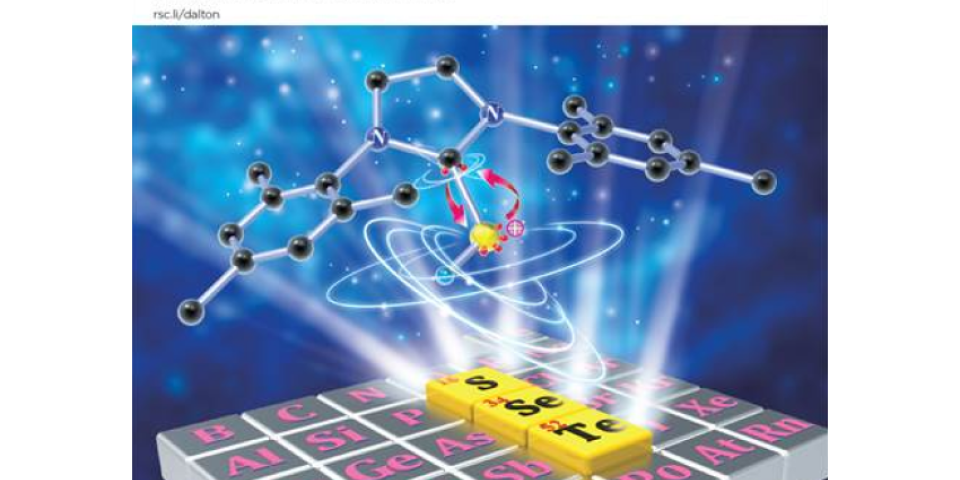
Dalton Transactions
What would you like to know about Dalton Transactions?
Scope
Dalton Transactions is a journal for all areas of inorganic chemistry, which encompasses the organometallic, bioinorganic and materials chemistry of the elements, with applications including synthesis, catalysis, energy conversion/storage, electrical devices and medicine. Dalton Transactions welcomes high-quality, original submissions in all of these areas and more, where the advancement of knowledge in inorganic chemistry is significant. Specific guidance for some areas of our scope is given below.
Dalton Transactions journal (rsc.org)
Impact factor: 4.390*
Time to first decision (all decisions): 14.0 days
Time to first decision (with reviews): 21.0 days
Chair: Russell Morris
Indexed in Web of Science, Scopus, and MEDLINE/PubMed
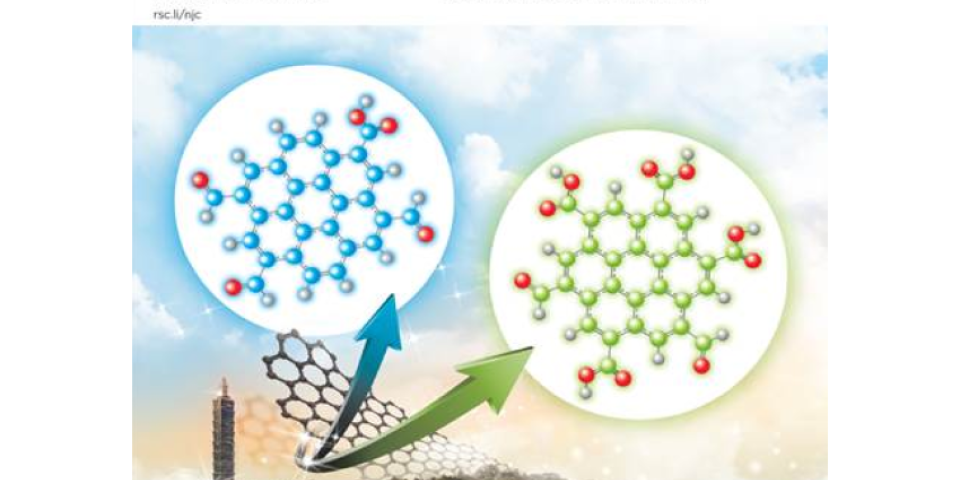
New Journal of Chemistry
What would you like to know about New Journal of Chemistry?
Scope
NJC (New Journal of Chemistry) is a broad-based primary journal encompassing all branches of chemistry and its sub-disciplines. It contains full research articles, communications, perspectives and focus articles.
This well-established journal, owned by the Centre National de la Recherche Scientifique (CNRS) of France, has been co-published with the Royal Society of Chemistry since January 1998.
NJC is the forum for the publication of high-quality, original and significant work that opens new directions in chemistry or in other scientific disciplines.
In addition to having a significant chemical component, work published in NJC must demonstrate that it will have an impact on areas of research other than that of the reported work.
Impact factor: 3.591*
Time to first decision (all decisions): 18.0 days
Time to first decision (with reviews): 27.0 days
Editor-in-chief: Jean-François Gérard
Indexed in Web of Science and Scopus
Sign up for regular email alerts

